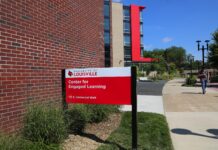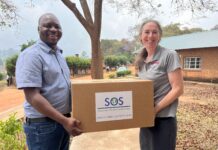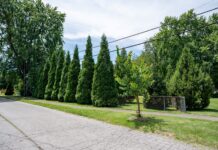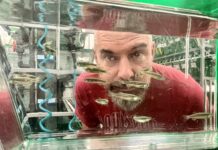
In January, Forbes published a piece outlining why Louisville is becoming “America’s Aging Capital.”
The article pointed out that Louisville is home to the largest cluster of aging care businesses (nursing homes, hospice, home-based health care, etc.) and boasts a number of health care and health insurance giants, such as Humana and Kindred Healthcare.
“These businesses employ more than 21,000 professionals, producing over $50 billion in revenue. City leaders want Louisville to build on that foundation to become a center of innovation for improving the quality of life for America’s growing elderly population,” the article states.
The objective to become an aging capital was first outlined in 2012 when Mayor Greg Fischer noted that Louisville is a leader in developing targeted economic development strategies around its strengths, including aging care and lifelong wellness.
The University of Louisville was recognized in the article for pitching into the cause alongside city government and business leaders. Specifically, UofL and other key institutions have “combined resources and backed several aging initiatives,” the article states.
In November, UofL announced an innovative new partnership with Kindred Healthcare, called the Hive, which is focused on creating healthcare technology solutions for aging care. These solutions include a mobile compliance app that was developed with the help of J.B. Speed School of Engineering students.
Kindred is also working on another app that would allow nurses to assess a patient’s eligibility for hospice care.
UofL’s contributions will likely increase thanks to a new, nearly $2 million grant awarded to the Institute for Sustainable Health and Optimal Aging by the U.S. Department of Health and Human Services. A strategy to engage primary care practitioners in meeting behavioral health needs of older adults is at the heart of the grant.
The money will go toward stipends each year to students in social work, psychology and psychiatric nursing programs who will be part of the Rural Geriatric Integrated Behavioral Health and Primary Care Training Network.
“When you look at a disease like dementia, patients deal with many behavioral disorders like paranoia or agitation, and there can be a lot of anxiety on how to problem-solve around those factors. This grant is important in not only getting behavioral health specialists into rural areas but also in opening up opportunities for physicians and nurse practitioners to coordinate with behavioral specialists to improve patient outcomes from a social support stand-point,” said Christian Furman, MD, the Institute’s medical director and a professor of geriatric and palliative medicine.
The Institute for Sustainable Health and Optimal Aging is devoting its resources to educational efforts throughout March and April as well. As a part of Age-Friendly Louisville, the Institute for Sustainable Health and Optimal Aging joins AARP, the City of Louisville and the Kentuckiana Regional Planning and Development Agency to host a number of workshops throughout Louisville that focus on what makes the community a better place for people to “live, work and play at every stage of life.” The events will include small group discussions on social, health, economic and built environments that can support individuals in leading lives that thrive.
Workshop dates are March 7, 14, 21, 28, and April 4, 7, 17 and 24. More information, including times and locations, is available online.
KIPDA and UofL’s Institute for Sustainable Health and Optimal Aging are also teaming up to host World Café this month throughout Jefferson, Bullitt, Shelby and Trimble counties. These events will include discussion about the results of the most recent regional needs assessment and how to work together to ensure support for the area’s aging population. More information is available online.
Finally, the Institute is currently seeking nominations for the Gold Standard Award for Optimal Aging. The 7th annual award will be given in September and will celebrate older adults who embody the Institute’s vision for “a world where all older adults lead engaged and flourishing lives.” Nominations will be accepted through April 15. More information is available online.
“Optimal aging is the ability to flourish throughout one’s lifespan. It is not a specific level of achievement but rather a state in which a person is able to continue living life to its fullest,” said Anna Faul, PhD, executive director of the Institute.
Thanks in part to UofL’s work, that ability to flourish is very much a reality in the city of Louisville.

































